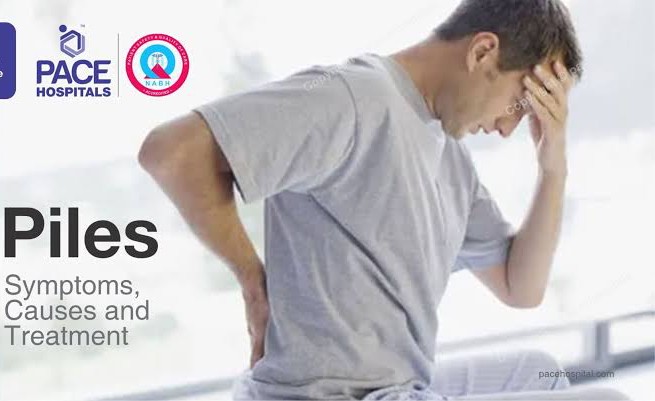Nearly three out of four adults will have pile, also known as hemorrhoids, from time to time.
Hemorrhoids have a number of causes, but often the cause is unknown. They affect people of all ages, genders, races and ethnicities. They’re more common as you age, affecting more than half of people over age 50. Fortunately, effective options are available to treat hemorrhoids.
What are hemorrhoids?
Join our WhatsApp ChannelHemorrhoids are swollen veins located around the anus or in the lower rectum.
Hemorrhoids can either be internal, external, or prolapse.
Internal hemorrhoids develop within the anus or rectum.
External hemorrhoids, the most common and most troublesome, develop outside of the anus.
Prolapse hemorrhoids:
Both internal and external hemorrhoids can prolapse, meaning they stretch and bulge outside of the anus. These hemorrhoids may bleed or cause pain.
Who might get hemorrhoids?
Anyone can get symptomatic hemorrhoids, even teenagers. (Because hemorrhoids take a while to develop, they’re uncommon in young children.)
You may be more at risk if you:
1. Are overweight or obese.
2. Are pregnant.
3. Eat a low-fiber diet.
4. Have chronic constipation or diarrhea
5. Regularly lift heavy objects.
6. Spend a lot of time sitting on the toilet.
7. Strain while passing stool
READ ALSO: Medication And Alcohol: A Poisonous Cocktail
What are the symptoms of hemorrhoids?
Internal hemorrhoids rarely cause pain (and typically can’t be felt) unless they prolapse. Many people with internal hemorrhoids don’t know they have them because they don’t have symptoms.
Symptoms of internal hemorrhoids
You might see blood on toilet paper, in the stool, or the toilet bowl. These are signs of rectal bleeding.
Signs of External hemorrhoids include:
1. Itchy anus.
2. Hard lumps near the anus that feel sore or tender.
3. Pain or ache in the anus, especially when you sit.
4. Rectal bleeding.
Prolapsed hemorrhoids can be painful and uncomfortable. You may be able to feel them bulging outside the anus and gently push them back inside.
How can it be diagnosed?
Your healthcare provider diagnoses hemorrhoids based on symptoms and a physical exam. You may also have:
1. Digital rectal exam: Your provider inserts a gloved, lubricated finger into the rectum to feel for a swollen vein
2. Anoscopy: Your provider uses an anoscope (lighted tube) to view the lining of the anus and rectum.
3: Sigmoidoscopy: Your provider uses a sigmoidoscope (lighted tube with a camera) to view inside the lower anus (sigmoid)
Complications
1. Anemia
2. infection of external hemorrhoids
3. Skin tags: Flap of tissue that Hangs off the skin
4. Bleeding
Can I treat it from home?
Hemorrhoids often go away on their own without treatment. Symptoms like pain and bleeding may last one week or slightly longer. In the meantime, you can take these steps to ease symptoms:
1. Apply over-the-counter ointment containing anti-inflammatory
2. Drink more water
3. Eat more fiber
4. Soak in a sitz bath for 10 – 20 minutes a day
5. Soften stool by using laxatives
6. Take analgesic for pain and inflammation
What can I do to prevent Hemorrhoids?
1. Avoid straining during a bowel movement. Also, try to increase your water intake.
2. Use the restroom as soon as you feel a bowel movement coming on to prevent hemorrhoids from developing.
3. Exercise regularly to prevent becoming constipated
4. Avoid sitting for long periods, especially on hard surfaces like concrete or tile.
5. Consuming foods that are high in dietary fiber can minimize the risk of developing hemorrhoids in the future; diet like oatmeal, bran, whole wheat.
READ ALSO: 6 Health Warning Signs You Should Take Seriously
Most hemorrhoids go away on their own. Treatments usually focus on relieving symptoms and may include taking warm baths and using hydrocortisone or a hemorrhoid cream or suppository. Exercising, drinking plenty of water, and eating more fiber can all help relieve constipation and prevent hemorrhoids from forming in the future.
With proper treatment, you’ll likely experience an improvement. Try following your doctor’s directions and maintaining a healthy regime.
Thank you for reading
Dr Kelly



















Follow Us